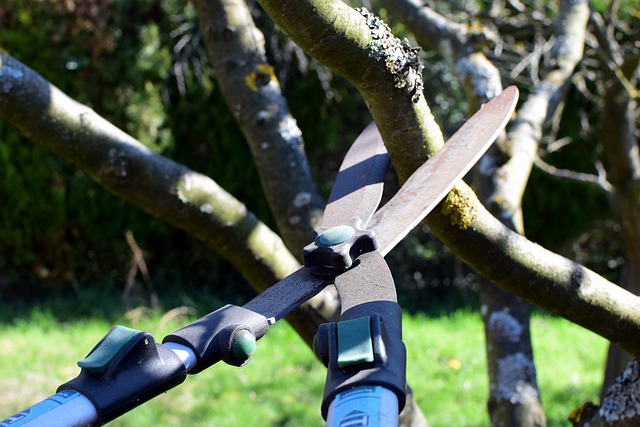
Here’s When to Prune Trees, Shrubs, and Flowers for Healthier Plants
Pruning is key to plant care. But, when you prune, it is vital for how well it works. You need to prune your trees on time to ensure their healthy growth.
Some plants can get the benefits of pruning year-round, but others have specific requirements and can only be trimmed at certain times of the year. It reduces stress on the plant. It lowers the risk of disease spread. It speeds up the healing of pruning wounds. Also, pruning at the best time can spur new growth. It can also lead to lots of flowers.
1. Pruning Trees: Timing and Techniques
Seasonal Timing for Tree Pruning
- Dormant Season Pruning
Shrubs and trees must be trimmed during their dormant season. However, there are species that do not have such strict needs and can withstand being pruned all year round. But for those who are not, you can inflict serious damage if you prune them in their active season. Tree health and good structure depend on proper and timely pruning.
- Summer Pruning
Summer pruning is best for certain tree species. This is especially true for those that produce lots of sap. Pruning in the summer reduces sap loss. It also cuts disease transmission risk. It’s also an excellent time to shape trees and remove unwanted growth.
Techniques for Tree Pruning
- Crown Thinning
Crown thinning involves removing branches from the canopy. This increases light and airflow. By using this method, the tree’s general health is improved, and the chance of disease is decreased.
- Structural Pruning
Structural pruning shapes the tree’s framework. It promotes strong branch attachments and prevents weak spots. It involves removing competing branches, crossing branches, and any other structural defects.
2. Pruning Shrubs: Best Times and Methods
Timing Considerations for Shrubs
- Spring Pruning
If you prune shrubs in very early spring it would help them have a growth spur at the right time of the year. It’s very stimulating to do some pruning and care before the start of the blooming season.
- Summer Pruning
Summer pruning works well for keeping shrubs in shape and at the proper size. Taking off sick or dead branches is also a good idea at this time. You should thin dense growth to improve airflow.
Techniques for Shrub Pruning
- Renewal Pruning
Renewal pruning involves cutting older, woody branches. This helps the shrub grow new ones from the base. It’s an effective technique for revitalising overgrown or neglected shrubs.
- Deadheading
Deadheading involves removing spent flowers from shrubs. This promotes continuous blooming and stops the formation of seeds. This encourages the shrub to put energy into making new flowers. This results in a longer time with flowers.
3. Pruning Flowers: When and How to Trim for Blooms
Timing Flower Pruning for Optimal Bloom
- Pre-Bloom Pruning
Prune before flowering. Do it in late winter or early spring. This encourages strong growth and lots of blooms. You must remove dead or sick branches. You must also shape the plant. This will make it flower well.
- Post-Bloom Pruning
After the flowering period, prune flowering plants. This removes spent blooms and encourages new growth. This helps keep the plant’s shape. It stops it from becoming leggy or overgrown.
Techniques for Flower Pruning
- Pinching
Pinching involves removing the tips of young shoots. This promotes branching and more flowers. This method is common in annuals and perennials. It makes them grow bushier and flower for longer.
- Cutting Back
Cutting back means removing some of the stems or branches of a tree. This controls its size and shape. This technique is great for perennial flowers and shrubs. They tend to become leggy or overgrown.
4. Factors to Consider When Timing Pruning
Plant-Specific Considerations
Plants have different pruning needs. These vary based on how they grow. Their flowering habits and susceptibility to pests and illnesses also differ. Prior to trimming, it’s critical to learn about the unique requirements of each kind of plant.
Climate and Weather Conditions
Local climate and weather conditions can also influence pruning timing. High heat, humidity, and long wet periods can harm how the plant responds to pruning. They can also harm its ability to heal.
Growth Patterns and Life Cycle
It is essential to comprehend the growth and life cycle of plants. It aids in determining when pruning is most beneficial. While some plants bloom on newly growing growth, others bloom on ancient wood. The health of the plant overall and flowering might be affected by improper pruning timing. Keep in mind that you can troubleshoot many common gardening problems easily.
5. Common Pruning Mistakes to Avoid
Over-Pruning
A typical pruning error many people do is over-pruning meaning they remove too many branches at once. Pruning a plant too much weakens it. It disrupts its natural growth pattern. It also makes the plant more open to pests and diseases. If you wish to avoid any pruning mistakes, you may want to turn to a professional tree surgery service for help.
Incorrect Timing
Pruning at the wrong time harms the plant’s recovery and flowering potential. It can also impact fruiting. It’s essential to research the optimal pruning timing for each plant species.
Improper Techniques
Using wrong pruning techniques leads to unsightly and unhealthy growth. Examples include topping and lion-tailing. Always make clean cuts. Do so just outside the branch collar or bark ridge. This promotes fast healing and prevents disease entry.
Conclusion: Timing Is Key to Successful Pruning
Gardeners will keep their landscapes healthy and vibrant if they follow their plants and trees’ pruning and maintenance requirements’ needs. They just need to do it at the best times. This enhances the beauty and vitality of their outdoor spaces. Check out our post on how to achieve the perfect garden makeover. You might be surprised at the things you can plant in your garden beside your trees.









thanks for the great tips
Thank you for sharing this